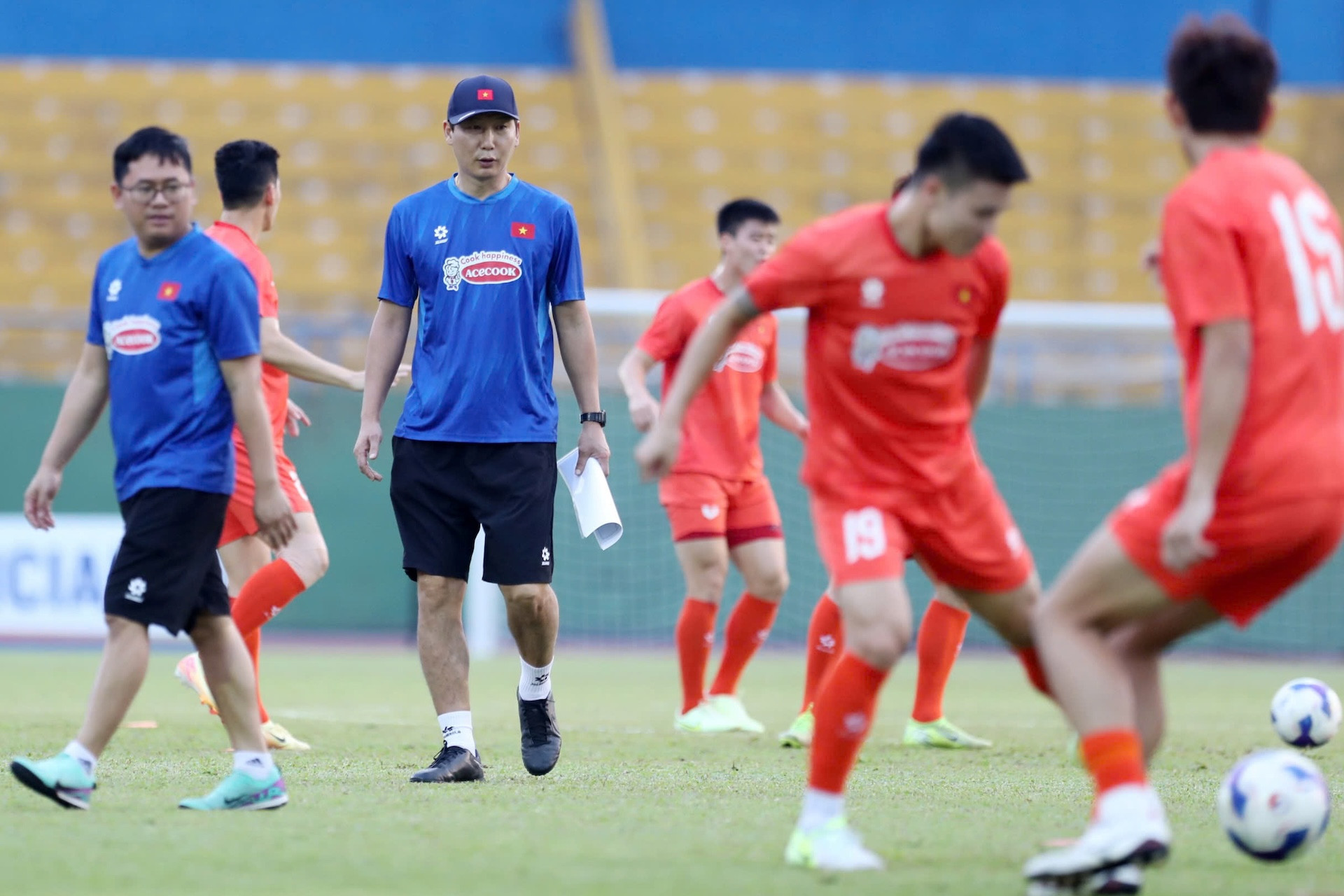
Vietnam’s victory at the 2024 AFF Cup reignited hope for national football following the decline of its “golden generation.” However, a heavy loss to Malaysia in the third round of the 2027 AFC Asian Cup qualifiers has brought that optimism crashing back to reality.
This result serves as a serious wake-up call for the Vietnam national team, prompting reflection on its current position in Southeast Asian football.
Naturalization: Necessary, but not sufficient
Since taking the helm of the national team, especially during the recent Asian Cup qualifiers, head coach Kim Sang-sik and his staff have struggled to address the team’s personnel issues - whether to rely on local talent or strengthen the squad through naturalized players, a strategy aggressively pursued by Indonesia, the Philippines, and Malaysia.
Indonesia recently became the first Southeast Asian team to win in the third round of the 2026 FIFA World Cup qualifiers for Asia and advanced the furthest in the region, securing three victories.
They also reached the semifinals of the 2024 AFC U23 Championship and nearly qualified for the Paris 2024 Olympics.
Despite some controversy, Indonesia’s success undeniably stems from its naturalization policy, which has rapidly transformed its squad. Many of its players now play for top European clubs, some valued in the millions of USD.
Previously, both the Philippines and Malaysia shocked Southeast Asian football by aggressively naturalizing players from abroad.
Today, the Philippines regularly fields around 10 naturalized players, while in the recent match against Vietnam during the World Cup qualifiers, Malaysia had 17 to 18 naturalized players in their lineup.
Not only neighboring Southeast Asian countries, but many footballing nations worldwide have adopted naturalization to strengthen their teams - often with success in tournaments like the World Cup and the Euro. In Southeast Asia, naturalized players help offset deficiencies in physique, stamina, and speed.
For the Vietnam national team and its football system, the issue now transcends tactical tweaks or playing style adjustments. It is a strategic, long-term question: should Vietnamese football follow the naturalization path like Indonesia and Malaysia?
According to former Hanoi Football Federation General Secretary Phan Anh Tu: “Naturalizing players is an inevitable trend in globalized football. Ignoring this policy means sacrificing our competitive edge.”
Naturalization can be a temporary fix when local players fall short of professional standards. Such players can strengthen the squad, raise its overall quality, and significantly enhance the team’s tactics and competitiveness. However, it is only a necessary condition - not the most crucial one.
Vietnam has previously utilized overseas Vietnamese players with success, such as goalkeeper Dang Van Lam and defender Nguyen Filip.
Some naturalized players have been called up to the national team in the past, but with limited impact or appearances. That changed with Nguyen Xuan Son (Rafaelson), a Brazilian-born striker who made a substantial impact in the 2024 AFF Cup, scoring five goals in five matches and earning the tournament’s Best Player award. Yet when Xuan Son suffered a long-term injury and missed the recent match against Malaysia, the team fell into disarray.
Lacking a commanding presence up front, Vietnam’s attack became disjointed and ineffective, allowing the opposition to dominate.
Leveraging internal strength for sustainable development
Vietnam Football Federation President Tran Quoc Tuan emphasized that instead of relying solely on naturalized players, Vietnamese football must build from within. It cannot afford to “build a house from the roof” by depending exclusively on overseas Vietnamese or foreign-born talent. Overdependence on naturalization risks sacrificing long-term stability for short-term gains.
Experts widely agree that while utilizing external resources through naturalization is a valid approach in modern football, it is not the core solution. From youth levels to the senior team, Vietnamese players need more international training camps and matches against advanced football nations to gain experience and develop.
Crucially, the domestic league system must be continuously invested in and upgraded - particularly the national championship - which serves as the foundation for maintaining form, refining skills, and developing competitive character.
Youth training must remain a top priority. Investing in young talent is not just about creating good players, but also about shaping modern football thinking, international competitiveness, and national pride.
To elevate the national team, Vietnam must strengthen and professionalize its domestic leagues. This includes improving refereeing standards, enhancing infrastructure, and especially improving pitch quality. The Vietnam Football Federation and the Vietnam Professional Football Joint Stock Company (VPF) must take a more hands-on approach in managing league quality.
Additionally, Vietnam should focus on developing school-level football competitions to nurture young talent and create a robust football culture from an early age. Regular youth tournaments can instill community support and passion for the sport.
Long-term backing from major corporations and philanthropic sponsors is also vital. With committed investors willing to fund youth training and infrastructure, Vietnamese football can grow sustainably, instead of relying on state budgets or short-lived national team achievements.
Only when these strategies are executed comprehensively and systematically - with long-term vision and practical adaptation - can Vietnam lay a strong foundation for major breakthroughs. That is the key to turning the dream of reaching the World Cup into reality in the not-so-distant future.
PV